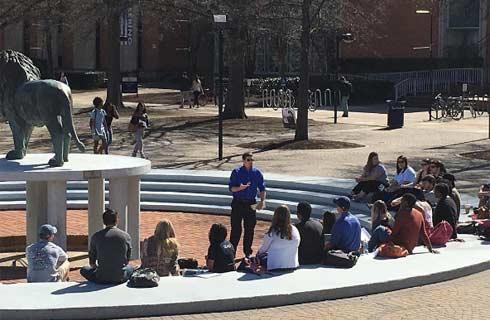- IDP China>
- 课程库>
- 商科与管理>
- 数学与统计学>
- 应用数学>
- Doctor of Philosphy in Applied Mathematics- Dynamical Systems and Ordinary Differential Equations
Doctor of Philosphy in Applied Mathematics- Dynamical Systems and Ordinary Differential Equations

学历文凭
Ph.D.

专业院系

开学时间

课程时长

课程学费

国际学生入学条件
IDP—雅思考试联合主办方

雅思考试总分
7.0
- 雅思总分:7
- 托福网考总分:77
- 托福笔试总分:160
- 其他语言考试:NA
CRICOS代码:
申请截止日期: 请与IDP联系 以获取详细信息。
课程简介
相关申请
 预科
预科 奖学金
奖学金 实习机会
实习机会 在校学习
在校学习 跨境学习
跨境学习 校园授课-线上开始
校园授课-线上开始 在线/远程学习
在线/远程学习
开学时间&学费
学费信息仅供参考,请与IDP联系以获取详细信息
| 开学时间 | 时长 | 学费 | 地点 |
|---|
学校排名

世界排名19
数据源:
泰晤士高等教育世界大学排名
关于康奈尔大学

常青藤联盟中的“学术高压锅”是不是很吓人?其实,这个称号更多是源自大部分学子所表现出的“我要更出色”的学术态度。与其它常青藤盟校大而全的发展策略不同,其一直致力于做“最好的本科教育”。其下属7所学院,4所私立,3所公立。其中康奈尔大学(Cornell University)建筑学院与酒店管理学院提供了全美最好的相关专业。早在Erza Cornell 1860年创立康奈尔大学(Cornell University)时,“一所让所有人可以学习任何专业的大学”即成为了以后200年这所高等学府所遵循的教育理念。学校的招生政策不考虑学生支付能力,并且保证迎合每一名录取学生的经济需要。 学校给学生提供超过4000类的课程,想要出国的学生可以选择超过200多个交换项目。康奈尔大学的种植园是一片超过3000亩的树林,自然山径,溪流和峡谷,提供了散步,野餐或者冥想的空间。康奈尔大学有常青藤大学所拥有的严谨学术,州立大学所具备的大规模和多样性,这所学校愿意偏离传统的常青藤模式,敢于创新的学生在这里将会得心应手舒适如归。
本校相关课程

国际学生和学者英语-暑期课程
学历文凭
English
开学日期
课程费用总额


法学博士
学历文凭
Ph.D.
开学日期
课程费用总额


Bachelor of Arts in Italian Studies
学历文凭
Bachelor Degree
开学日期
课程费用总额


Master of Engineering in Engineering Mechanics
学历文凭
Masters Degree
开学日期
课程费用总额


Bachelor of Science in Earth and Atmospheric Sciences
学历文凭
Bachelor Degree
开学日期
课程费用总额


Bachelor of Science in Science and Technology Studies
学历文凭
Bachelor Degree
开学日期
课程费用总额

其他相关课程

数学科学学士-离散应用数学
 蒙特克莱尔州立大学
蒙特克莱尔州立大学学历文凭
Bachelor Degree
开学日期
课程费用总额


应用数学理学学士
 圣地亚哥州立大学
圣地亚哥州立大学泰晤士高等教育世界大学排名:1107
学历文凭
Bachelor Degree
开学日期
课程费用总额


计算与应用数学哲学博士
 芝加哥大学
芝加哥大学学历文凭
Ph.D.
开学日期
课程费用总额


数学理学学士-离散数学应用
 奥本大学
奥本大学泰晤士高等教育世界大学排名:618
学历文凭
Bachelor Degree
开学日期
课程费用总额


数学理学学士-应用数学
 威廉与玛丽学院
威廉与玛丽学院学历文凭
Bachelor Degree
开学日期
课程费用总额


数学理学学士-应用数学
 科罗拉多州立大学-INTO USA
科罗拉多州立大学-INTO USA学历文凭
Bachelor Degree
开学日期
课程费用总额










